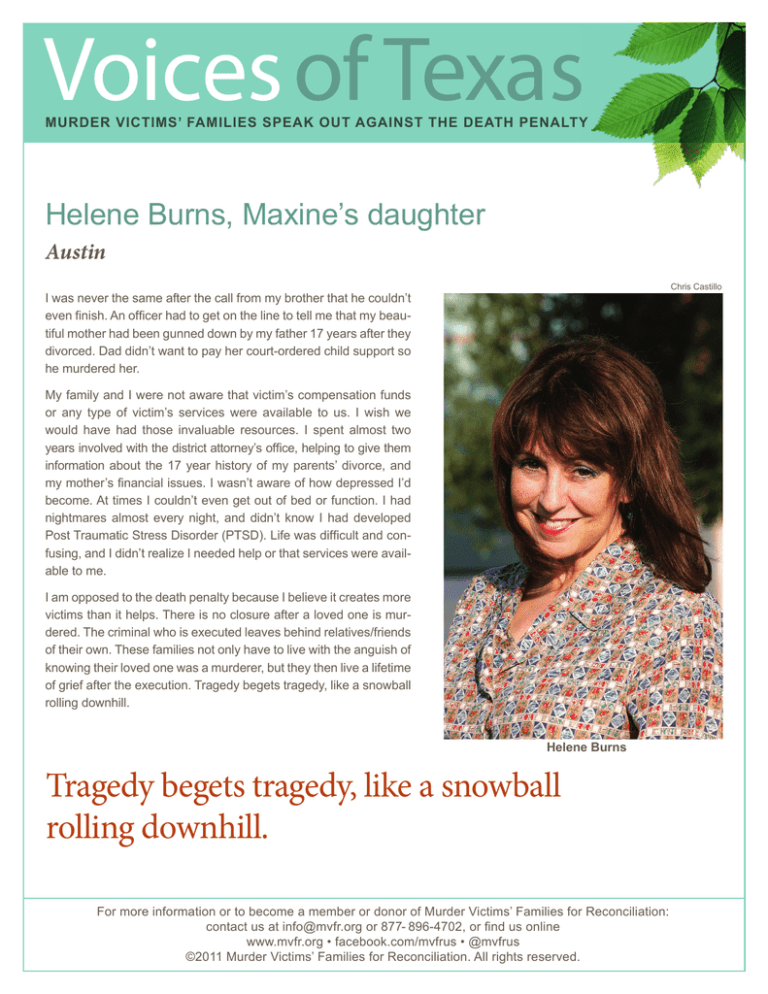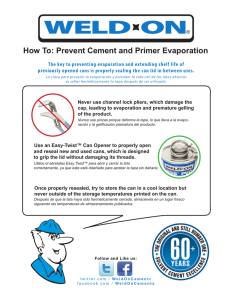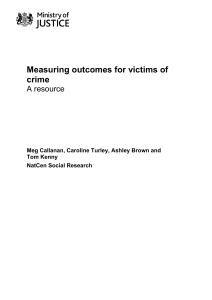Tragedy begets tragedy, like a snowball rolling downhill.
Anuncio

Voices of Texas MURDER VICTIMS’ FAMILIES SPEAK OUT AGAINST THE DEATH PENALTY Helene Burns, Maxine’s daughter Austin Chris Castillo I was never the same after the call from my brother that he couldn’t even finish. An officer had to get on the line to tell me that my beautiful mother had been gunned down by my father 17 years after they divorced. Dad didn’t want to pay her court-ordered child support so he murdered her. My family and I were not aware that victim’s compensation funds or any type of victim’s services were available to us. I wish we would have had those invaluable resources. I spent almost two years involved with the district attorney’s office, helping to give them information about the 17 year history of my parents’ divorce, and my mother’s financial issues. I wasn’t aware of how depressed I’d become. At times I couldn’t even get out of bed or function. I had nightmares almost every night, and didn’t know I had developed Post Traumatic Stress Disorder (PTSD). Life was difficult and confusing, and I didn’t realize I needed help or that services were available to me. I am opposed to the death penalty because I believe it creates more victims than it helps. There is no closure after a loved one is murdered. The criminal who is executed leaves behind relatives/friends of their own. These families not only have to live with the anguish of knowing their loved one was a murderer, but they then live a lifetime of grief after the execution. Tragedy begets tragedy, like a snowball rolling downhill. Helene Burns Tragedy begets tragedy, like a snowball rolling downhill. For more information or to become a member or donor of Murder Victims’ Families for Reconciliation: contact us at info@mvfr.org or 877- 896-4702, or find us online www.mvfr.org • facebook.com/mvfrus • @mvfrus ©2011 Murder Victims’ Families for Reconciliation. All rights reserved. Voices of Texas MURDER VICTIMS’ FAMILIES SPEAK OUT AGAINST THE DEATH PENALTY Helene Burns, la hija de Maxine Austin Chris Castillo Nunca fui la misma persona después de esa llamada de mi hermano que ni él pudo terminar. Un agente de la policía tuvo que continuar la llamada telefónica para contarme que mi padre, después de 17 años de haberse divorciado de mi hermosa madre la había tiroteado. Mi papá la mató porque no le quería pagar la pensión alimenticia para sus hijos, ordenada por los tribunales. Ni mi familia, ni yo no tuvimos conocimiento de los fondos de compensación para víctimas o de cualquier otro servicio para víctimas que estaban disponibles. Hubiera deseado tener esos invaluables recursos. Pasé casi dos años colaborando con la oficina del fiscal del distrito, dándole información sobre la historia de los diecisiete años del divorcio de mis padres y los asuntos financieros de mi madre. No me di cuenta que estaba muy deprimida. A veces ni siquiera podía levantarme de la cama o funcionar bien. Casi cada noche tenía pesadillas, y no sabía que yo había desarrollado el Trastorno de Estrés Postraumático (TEPT). La vida era difícil y confusa, y no me percaté que necesitaba ayuda o que existían servicios para mí. Me opongo a la pena de muerte porque creo que produce más víctimas en vez de ayudarlas. Después del asesinato de un ser querido, no existe una manera de lograr un cierre emocional. El delincuente ejecutado deja atrás a sus propios familiares y amigos.Estas familias no solamente tienen que vivir con la angustia de saber que su ser querido era un asesino, sino también tienen que soportar una vida de dolor después de la ejecución. Una tragedia genera otra tragedia, como una bola de nieve que rueda cuesta abajo. Helene Burns Una tragedia genera otra tragedia, como una bola de nieve que rueda cuesta abajo. For more information or to become a member or donor of Murder Victims’ Families for Reconciliation: contact us at info@mvfr.org or 877- 896-4702, or find us online www.mvfr.org • facebook.com/mvfrus • @mvfrus ©2011 Murder Victims’ Families for Reconciliation. All rights reserved.








